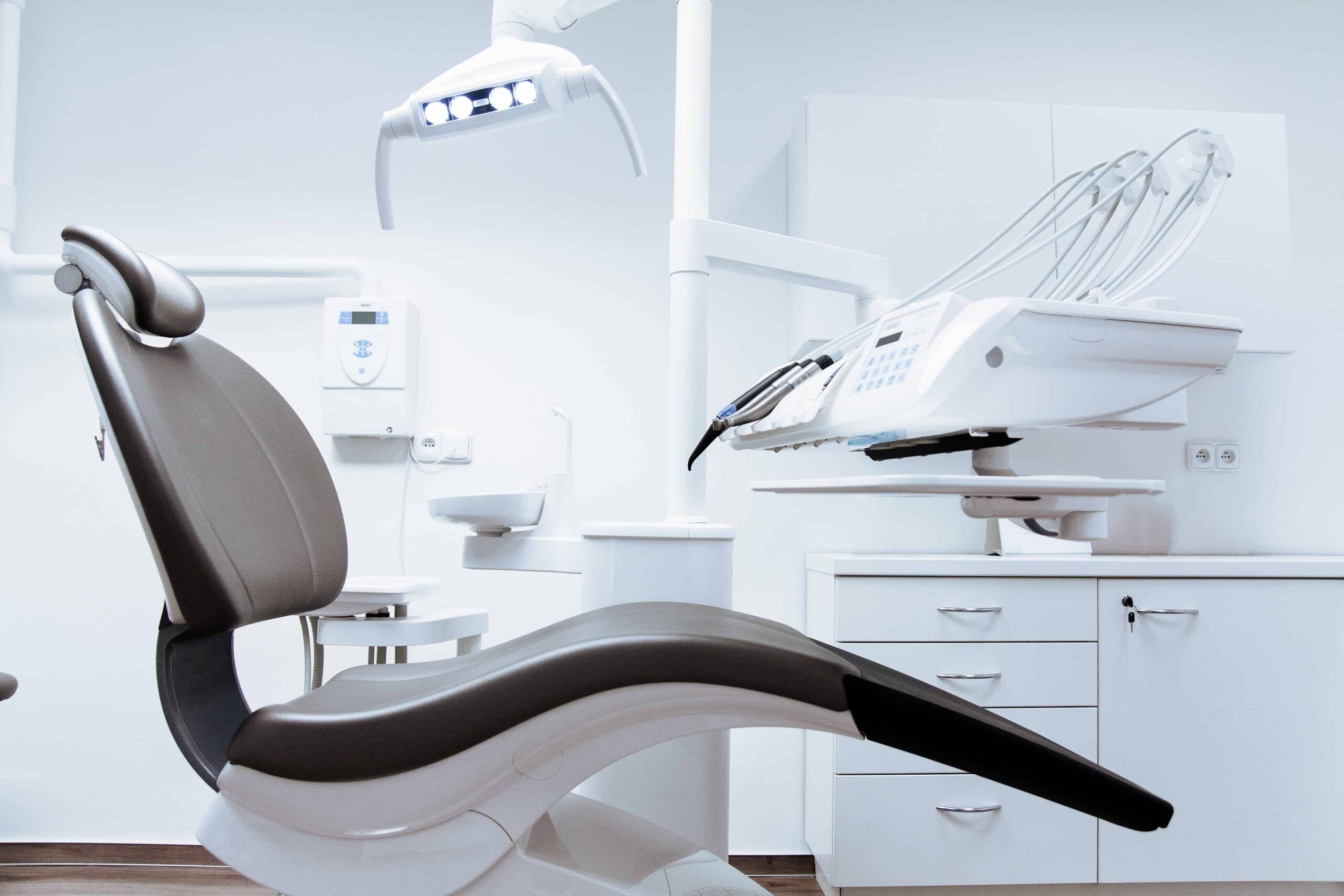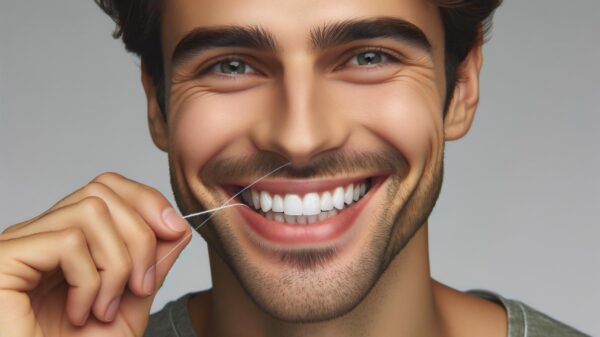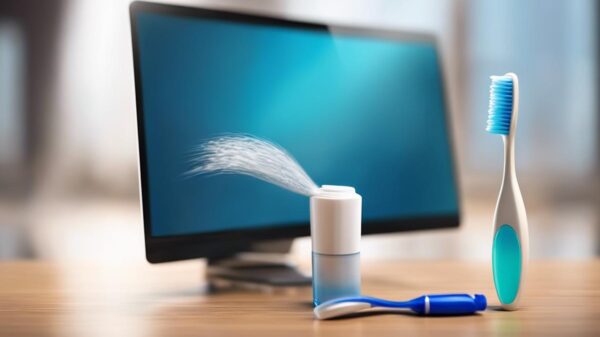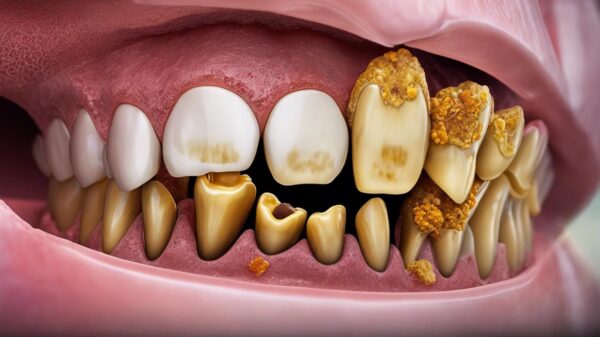There are many theories about when and how to brush your teeth to get the best results. However, many of these are simply myths! While it is crucial to brush your teeth each day, it is also very important to do so in the correct manner. Practicing proper brushing technique will guarantee that both your teeth and your gums are as healthy as possible.
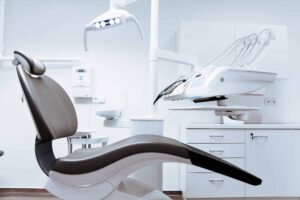 Since it is important to know the proper way to brush your teeth each day, we are sharing the most common teeth cleaning myths. Being able to discern the difference between fact and myth will enable you to clean your teeth in the most effective manner.
Since it is important to know the proper way to brush your teeth each day, we are sharing the most common teeth cleaning myths. Being able to discern the difference between fact and myth will enable you to clean your teeth in the most effective manner.
Surprisingly, cleaning your teeth with poor technique can actually cause more damage than not brushing them at all! Tooth abrasion and gum damage can both be caused by brushing too aggressively or with improper technique. Knowing the truth behind these common teeth cleaning myths will allow you to pursue a healthier, cleaner smile.
Myth 1: The harder you brush, the cleaner your teeth will be.
This is likely the most common tooth cleaning myth. Brushing your teeth harder does not mean that they will automatically be cleaner. In fact, brushing your teeth too hard will actually cause abrasion. Tooth abrasion is caused when the hard enamel on the outside of your tooth is worn down. Enamel is crucial to the health of your teeth as it protects against cavities and decay. The American Dental Association recommends always using a soft-bristled toothbrush with a light touch to achieve the best cleaning without damaging the enamel of your teeth.
Myth 2: Chewing gum is just as beneficial as brushing your teeth.
Although sugar-free chewing gum is beneficial for your teeth, it is not as beneficial as simply brushing them. When you chew gum, your saliva production is increased. Saliva is important as it washes away acids that linger in your mouth which could eventually lead to erosion. However, it is still very important to brush your teeth twice each day as well as floss your teeth daily.
Myth 3: Flossing is a waste of time.
Flossing can seem like a pain as it adds a few extra minutes to your bedtime routine. However, flossing once each day is an important part of keeping both your teeth and your gums healthy. When you fail to floss, you avoid cleaning the sides of your teeth, space where damaging bacteria and plaque can collect. Properly flossing will only take a few minutes of your day and will be extremely beneficial to your overall oral health.
Myth 4: Stop brushing your teeth if your gums start bleeding.
Seeing blood while you are brushing your teeth can be unnerving. However, it is typically not a cause for much alarm. Your gums begin to bleed when they are inflamed. Inflammation is caused by bacteria that has collected in your teeth and gums. Because of this, it is important to continue to brush and floss despite the blood. There are rare circumstances where an unusual amount of blood will appear while you are brushing your teeth. If this is the case, talk to your dentist or doctor immediately as blood can be a sign of a more serious health problem.
Myth 5: If you floss before your dentist appointment, the dentist will think you floss consistently.
We are all guilty of failing to floss consistently. We tend to try to cover this flaw up by flossing the morning before our bi-annual dental appointment. This is truly not necessary as both the dentist and the dental hygienist will be able to tell if you floss consistently or not. Instead of wasting your time on the morning of your appointment, ask your dentist for tips on how to develop a consistent flossing routine.
Myth 6: Sensitive teeth are caused by a lack of enamel.
Many people think that having sensitive teeth is a sign of a lack of enamel on their teeth. Although tooth sensitivity is a primary symptom of a lack of enamel, it can also be caused by other factors. Things such as receding gums or tooth whitening products can cause sensitivity of the teeth. Tooth sensitivity is inconvenient and is definitely something you should try to avoid if at all possible.
Myth 7: Sugar causes cavities.
Growing up, our parents convinced us that eating too much sugar would cause us to have cavities during our next dental visit. Although they were on the right track, this is not the whole truth. Cavities are formed by carbohydrates of all types. This means that sometimes a salty snack can be more damaging than a sweet treat would be! At the end of the day, as long as you brush your teeth properly and floss consistently, you should have no problem with cavities developing.
Myth 8: White teeth equal healthy teeth.
We have been told all of our lives that bright white teeth are the ideal we should strive for. However, just because someone’s teeth are bright white doesn’t mean they are necessarily healthy. Factors such as age and dietary habits can cause off-colored teeth. In the same way, overusing tooth whitening products can cause irreversible damage to both the teeth and gums.
Myth 9: Visiting the dentist only matters if a tooth is bothering you.
Preventative dental care can save you thousands of dollars and much pain in the long run. Because of this, it is important to maintain your oral health by visiting your local dentist twice each year for a dental exam and cleaning. Scheduling an appointment every 6 months may seem unnecessary. However, emergency dental care is both painful and pricey.
Myth 10: Gum disease only affects your gums.
This myth can have potentially deadly implications. Although gum disease would be damaging enough if it only affected your gums, it can also lead to severe health issues. Gum disease has been linked to conditions like oral concerns, diabetes, and even heart disease! Taking care of your teeth and gums is a part of caring for the overall health of your body.
Myth 11: Flossing creates unwanted space between your teeth.
A common reason why people refuse to floss their teeth is because they claim their teeth feel “loose” after flossing. It is also said that flossing can create a space between your teeth. This is yet another teeth cleaning myth. It may feel like your teeth are loose after flossing because the built-up plaque that was between your teeth is now removed. Rest assured that flossing will not actually loosen your teeth.
Myth 12: Baby teeth are not important.
It is easy to dismiss dental problems with baby teeth as they will eventually fall out. However, taking good care of baby teeth is an important part of guaranteeing a healthy future for oral health. Baby teeth pave the way for the adult teeth that will follow them. Because of this, it is important to take good care of baby teeth as well as the gums of young children.
Myth 13: It doesn’t matter what time of day I brush.
There is a reason why dentists recommend brushing once in the morning and once in the evening. It is important to brush twice a day for several reasons. Brushing in the morning removes the plaque that was built-up on the teeth overnight. It is also a way to freshen your breath before the day. Your friends and family will thank you. Brushing in the evening is crucial as well. Nighttime brushing removes any excess food that was left in your teeth from the day. It also removes the plaque and bacteria that would otherwise sit on the surface of your teeth overnight and wreak havoc.
Myth 14: Oral health is completely separate from your overall health.
Oral health actually has a great impact on your overall health. Your oral health can also be an indicator of problems with your overall health that you may be unaware of. There are several correlations between your oral and overall health. An unhealthy mouth produces bacteria that will eventually enter your bloodstream. Several studies have been done which show the correlation between gum disease and serious health issues such as concerns, diabetes, and even heart disease. Knowing the truth behind this myth will encourage you to take your oral health more seriously.
Myth 15: I’m old so it’s okay if I have bad teeth.
Old age does not mean that you have to resign yourself to having bad teeth for the rest of your life. There are many young people with severely damaged teeth. In the same way, there are many older people with perfectly healthy teeth! Taking proper care of your teeth in your early years will reap many oral health benefits in the later years of your life. No matter your age, it is important to take care of your teeth in the best way possible, by brushing and flossing your teeth each day.
Myth 16: Mouthwash is an acceptable replacement for flossing.
Mouthwash is a great way to further clean both your teeth and gums. However, it is not an acceptable replacement for flossing. Flossing removes the built-up plaque that gets stuck between the teeth, something mouthwash is not able to do on its own. This doesn’t mean that mouthwash is a waste of time though! Mouthwash is a great way to finish your oral hygiene routine and leave your mouth with a fresh taste. Many people choose to use mouthwash for the clean effect they are left with.
Myth 17: If toothpaste isn’t sudsy, it’s not working.
Toothpaste is usually sudsy, it’s what we’ve grown accustomed to. This hasn’t always been the case though! Ingredients were added to toothpaste to create the suds that we all relate to cleaning power. However, there are many natural alternatives that do not include these foaming agents. These ingredients add nothing to the cleaning power of your toothpaste. Toothpaste without these added ingredients will clean your teeth just as thoroughly.
Myth 18: Soft-bristled toothbrushes are just for children.
Toothbrushes are sold in many different styles. Some are straight and some are curved. There are short brushes and longer brushes. All toothbrushes are rated for the feel of their bristles. The most common types are soft-bristle, medium-bristle, and firm-bristle toothbrushes. Many people believe that soft-bristled brushes are only made for children. However, the American Dental Association actually recommends that everyone, no matter their age, use a soft-bristled toothbrush. Using a toothbrush with firm bristles can make it very easy to brush too aggressively. Aggressive brushing leads to erosion which is something you need to avoid at all costs.
Myth 19: Manual toothbrushes clean better than electric toothbrushes.
Manual toothbrushes have been around for a long time. That doesn’t mean they are the best option for everyone though! Within more recent years, electric toothbrushes have taken off. There is an electric toothbrush for every situation, style, and price range! Using an electric toothbrush has its benefits. An electric toothbrush often has a built-in timer which will ensure that you are brushing your teeth for a full two minutes each time. There are also benefits of using a manual toothbrush. Manual toothbrushes are smaller and highly portable. This makes them ideal for someone with minimal storage space or a busy travel schedule.
There are clearly many common myths regarding how to keep your teeth as healthy as possible. As with anything, it is important to do your research before deciding how to proceed with your personal oral healthcare. If you have questions or concerns regarding a teeth cleaning myth, your local dentist will be able to offer valuable insight and answers!
Keeping your teeth and gums healthy will play a large role in your oral and overall health for years to come. No matter what you believe regarding some of these tooth cleaning myths, brushing your teeth twice each day is not negotiable. It is also important to floss daily. Visiting your local dentist every six months is the best way to take care of your teeth by preventing potential oral care emergencies.
Click here to learn more about proper brushing technique.



